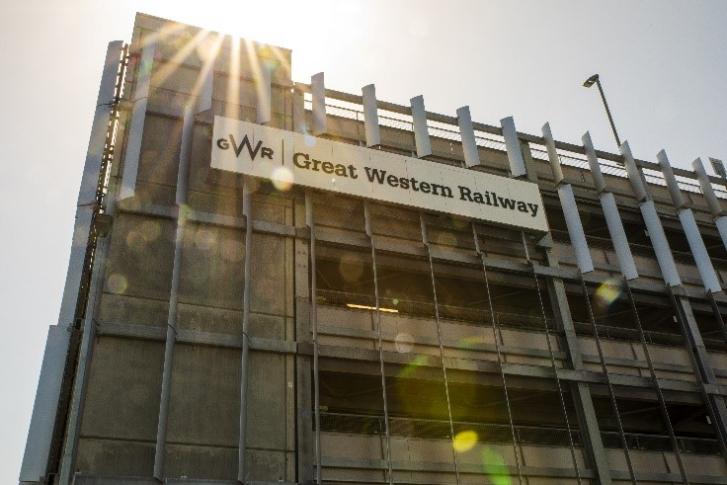
Local Growth Fund Case Study: Didcot Station Multi-Storey Car Park
A key gateway to the Science Vale science and technology cluster and the Enterprise Zone including Milton Park, Harwell Campus, and Culham Science Park, improving the usability and capacity of Didcot Station seeks to unlock a number of local economic opportunities.
The development of the station car park has enhanced the prospect of Didcot becoming a garden town, with this status set to galvanise Didcot’s social, cultural, economic, political, and environmental assets as one whole ecosystem, creating an inclusive and holistically planned town of high-quality and affordable housing and cultural amenities, with healthy, sociable, and civic-minded communities at its core.
Didcot Station is the second busiest station in Oxfordshire, dealing with over 3,000,000 passengers every year in the years pre-pandemic, with an annual average increase in passenger numbers of 7.4% year-on-year.
The station is a major hub for trains in the area, with connections to Oxford, Banbury, Reading and London and the car park is the latest stage in its redevelopment. The new car park has a capacity of approximately 1,800 spaces arranged over ground level and upper floors of the multi-storey car park and adjacent external car parking area.
£9.5m funding for the project was secured by OxLEP through the government’s Local Growth Fund, with Great Western Railway and the Department for Transport providing £10.95m match funding and a further £3.3m match from Network Rail.

This new multi-storey car park has improved the experience for all that use the Didcot Parkway station and in keeping with the Funding Agreement (dated February 2017) the project has delivered the following outputs:
- Provision of an additional 910 car park spaces for use by the general public. This takes the total car park spaces to 1805 spaces on the site.
- Covered footbridge leading to the station.
More in Business Strategy

What prospects are thinking but often fail to ask
I was at a B4 Ecosystem Event recently run by Caroline O’Connor of Fourth Born and she posed a brilliant question to the room. Article by David Finch of Purple Frog

‘Meanwhile in Oxfordshire..’ Case Study: Ducky Zebra, the sustainable kidswear brand...
‘Often girls’ clothes are pink, cute and impractical. They promote kindness, but not always confidence. And boys’ clothes are often blue, aggressive and adventure seeking. They promote confidence, but not always kindness. I wanted to bring these two characteristics together and allow all children, no matter what their gender, to celebrate both kindness and confidence.’ – Sally Dear, Founder of Ducky Zebra
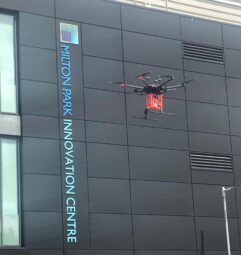
Innovative drone delivery trials take place at Milton Park
A pilot demonstration for a set of innovative drone and electric van freight trials was successfully completed at Milton Park.
From this author
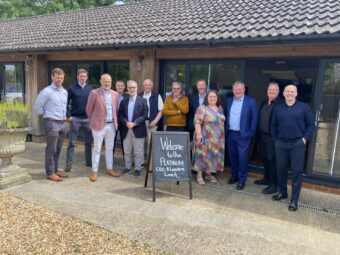
B4 Platinum CEOs and Leaders Discussion Lunch with Nigel Tipple, CEO,...
On a monthly basis, B4 invites a leader from one of its Platinum membership companies to host a lunch, bringing together senior directors from within the B4 community giving those in attendance an opportunity to share news, collate views or discuss common challenges or opportunities faced by businesses.
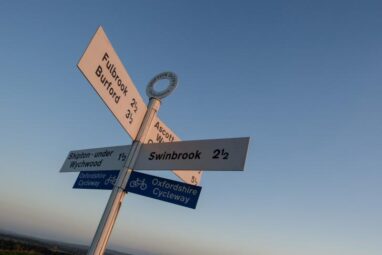
Strategic Marketing Campaigns Commissioned – to support Oxfordshire’s visitor economy –...
A series of targeted marketing campaigns to promote Oxford and Oxfordshire have been commissioned with both Experience Oxfordshire and Cotswolds Tourism securing contracts to deliver the nine campaigns.
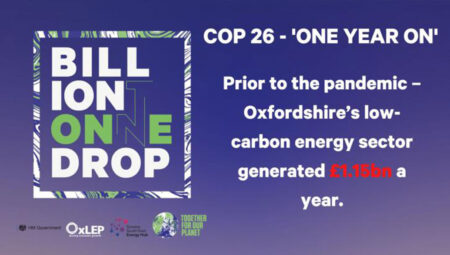
‘One year on from ‘Billion Tonne Drop’-themed conference, Oxfordshire has an...
On Tuesday 9 November 2021, OxLEP hosted an official COP26 roadshow event on the Presidency’s ‘Science and Innovation’ Day, titled ‘’The Billion Tonne Drop – How Oxfordshire leads the global charge to address the climate emergency’.

